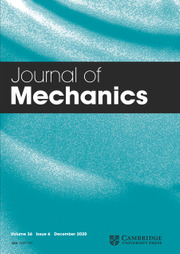Article contents
Alumina Nanofluids As Electrolytes Comparisons to Various Neutral Aqueous Solutions Inside Battery
Published online by Cambridge University Press: 09 November 2015
Abstract
This study investigated four electrolytes (tap water, mineral water, seawater, and Al2O3 nanoparticles emulsified in deionized water) to prepare nanofluids for enhancing their microgeneration and heattransfer capabilities by conducting thermoelectric performance experiments on power generation facilities. This study first performed a two-step synthesis process by using emulsion-ultrasonic technology for fabricating an Al2O3 nanofluid to determine the optimal suspended stability for the alumina nanofluid used as an electrolyte according to the Zeta potential, pH value, thermal conductivity, and viscosity. The alumina nanofluid was then compared with the other aqueous solutions to determine the characteristics of the effects of the output currents, voltages, resistances, and temperature distributions at different operating temperatures, distances, and electrode areas. Finally, the emulsifying effect of the alumina nanofluid between 0 wt % and 2 wt % demonstrated the most favorable stability, particle fraction, thermal conductivity, and stable current output.
- Type
- Research Article
- Information
- Copyright
- Copyright © The Society of Theoretical and Applied Mechanics, R.O.C. 2016
References
- 6
- Cited by


